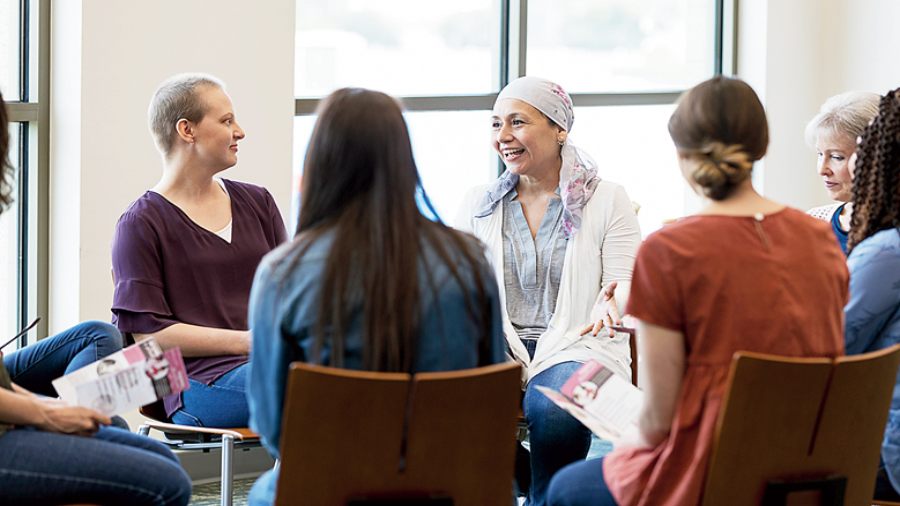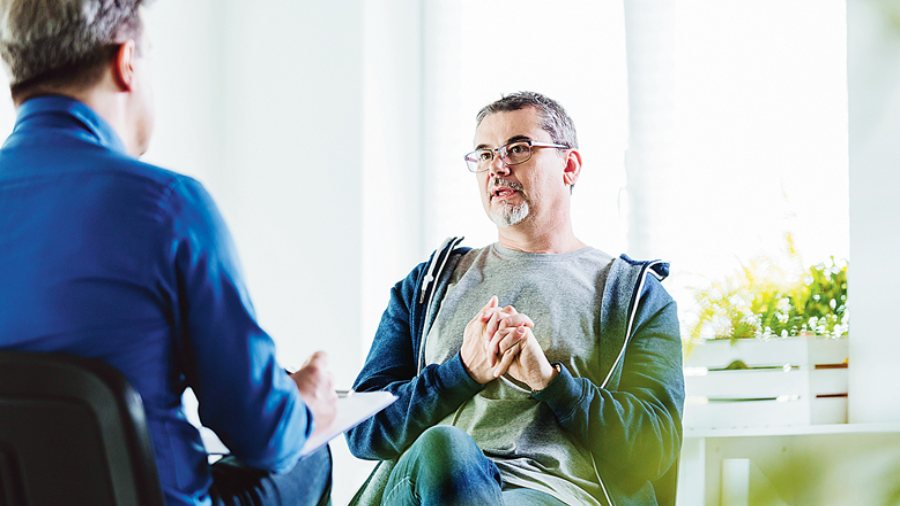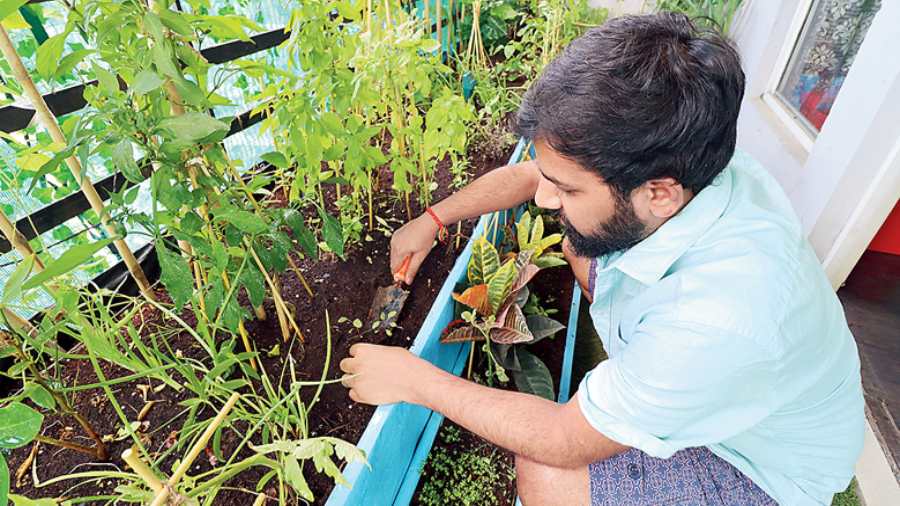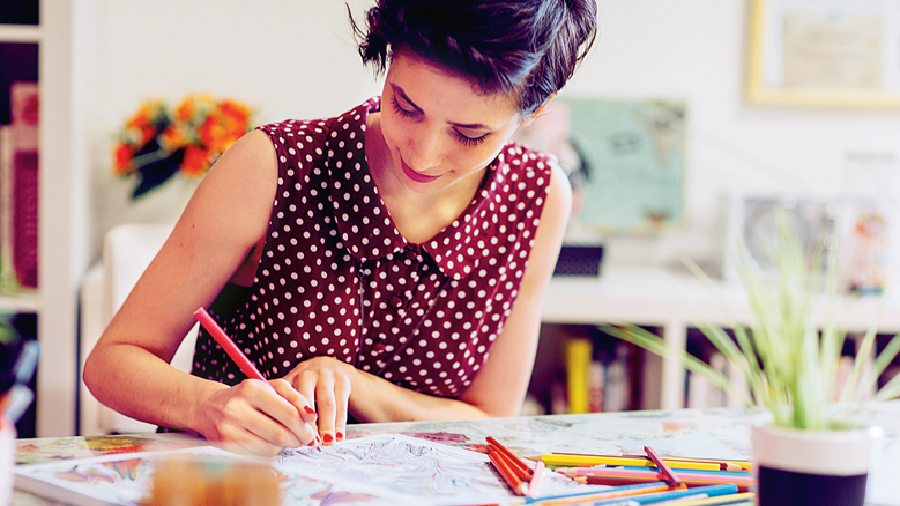Being diagnosed with cancer is a shock. While your body fights a physical battle, your mind is fighting more. And to win the war against cancer, focusing on treating and strengthening the mind is as important as treating and nourishing the body. Also, I know it is easier said than done, but the will to thrive, not just survive, is essential for your quality of life. This is something I’ve learnt from seeing both my mother and a close friend fight cancer.
The focus needs to be on not only treating and curing the cancer, but on living as much of a full life as possible. Based on interactions with cancer warriors, today I’m talking about the Big C and mental healthcare’s place in your treatment plans to ensure you cope with hope and live well through this difficult time of life.
Before treatment
Distract yourself as much as possible. If you are physically able, go out as much as possible and do all the things you love. Get coffee with your friends, go on a date with your partner, catch a movie at the theatre, go to an amusement park, visit a place you’ve always wanted to go to, or even take a staycation at your favourite fancy hotel.
Do not think ‘doomsday’ thoughts. The time before a diagnosis is extremely stressful — waiting for a call that can potentially change the course of your life is no simple thing. However, this is not the time to imagine a worst-case scenario. It is natural to feel scared and start Googling side effects. And it is okay to do so, but in moderation. Fix a specific hour, and stick to it. Focus on reading survivor stories and treatment journeys with a positive outcome.
During treatment
Have a frank discussion with your doctor. It’s perfectly okay to have a hundred or thousand questions. And none of these are stupid questions, so ask your doctor about all your queries in detail. Especially the side effects. Knowing what’s coming, however daunting, will help build your mental strength. This is also not the time to be shy. If you have questions about intimacy and fertility, ask what you need to know so you can plan accordingly.

Do not alienate yourself. Navigating the unknown on your own can be frightening. You may not want to discuss it because of various reasons — you think it’ll be a burden, you don’t want to scare your loved ones, you feel people may be judgemental. But having a support system is essential.
Whether it’s family, friends, colleagues, or a support group, you will need your people to get through this. Whenever you feel well enough for company, try group activities that you love doing, even if it’s only for 15 minutes. If you’re too tired, just having someone who cares for you hold your hand in silence can be immensely comforting too.
Talk with other cancer survivors. Whether it’s one-to-one, in a group setting, in person, or offline, connecting with people who are going through or have gone through a similar experience will be of great help. Having someone who really understands your feelings and is available to mentor you in this journey makes a huge difference.

Explore counselling. While venting to your loved ones is healthy, speaking with someone who can offer you customised coping strategies to handle your emotional challenges is an option I will strongly recommend. Stress, anger, loneliness and hopelessness are feelings that will be coming up and a counsellor or psychologist will be able to guide you through this sea of negative emotions. As families and significant others will be living this with you, although in a different capacity, couples counselling and family counselling are good options to consider too.

Understand your finances. Navigating the financial side of treatment is a huge part of the stress that most patients and their families face. Thus it’s a good idea to get a deep understanding of your assets and figure out which accounts will be used for medical expenses. If you’ve put together an emergency or rainy day fund, this is also the time to figure out if, how, and when you may need to dip into these savings. In case you need to sell assets, apply for loans, or require charitable funding, this is the time to get started.
Preparing for a changed physical appearance. Treatments will take a toll on your appearance and the most prominent issue is hair loss. If you want to wear a wig, begin your research now. Or if you’d rather wear colourful scarves or hats, look for those too. When you first notice your hair falling, you can also choose to cut it short or shave it off completely. My friend did this and found it to be very liberating. When you feel comfortable enough, you can share your story and help thousands of others going through the same thing.
Go shopping. Light, soft, comfortable and loose clothing will keep you comfortable. Head to a store or look online for pyjama sets and lounging clothes in happy prints.
Cotton, linen and natural fabrics tend to be more comfortable not just for clothes, but bed linen too. Since you will be spending a lot more time in your room, you may want to redecorate it too.

Hold on to your hobbies. With different levels of fatigue and weakness, it can be tempting to put a stop to your hobbies, especially if they involve a lot of energy and movement. Instead of saying goodbye to something you love, modify it to match your comfort. If Zumba was your jam, do light exercises and stretches to the same music. If gardening makes you glad, care for succulents, air plants, or even grow microgreens and kitchen herbs in your verandah.

Nourish to flourish. What you put in your body is instrumental in helping you get better. Working with a nutritionist to customise your diet can help you meet your satiety and nutritional needs. Tailoring food according to your treatment stages and the relevant side effects will also ensure you are stronger and better prepared for battle. In addition to good food, you also need positive surroundings. For this you can redecorate your room — add bright, happy cushions, quirky quotes, abstract art, pretty curtains, positive quotes, etc. And you don’t have to spend a lot either.
Celebrate — big and small. Make every moment count. Whether it’s an occasion like a birthday or anniversary, the first day you didn’t throw up after treatment, or the first time you could walk up a flight of stairs without feeling tired — it all deserves to be celebrated. And for any external events where you can’t be there in person, join in via a video call.
Get a pet. If your family or support system can manage, you can get a pet. Having a dog or cat around you can provide immense stress relief. If it’s not possible to keep one, see if your friends can bring over any of their pets for a visit.
Sit with your sadness. It is natural for you to feel multiple stages of grief after your diagnosis — denial, anger, bargaining, depression, acceptance. And during this time, it is essential to grieve small, personal losses — a wedding you may never have, a place you may never travel to, a professional goal you can no longer achieve — to help cope with a different future. It’s okay to not pretend to be strong for a day or two — you have the right to feel sad.
Prayer, meditation, and affirmations. The aim here is not to eliminate all negative thoughts, but to keep them manageable and at bay. Based on your faith, you can memorise a short prayer of strength to repeat whenever you feel low. Meditating early in the morning and right before you sleep can help you retain a positive mindset. Guided meditation audio tracks, motivation podcasts, and affirmations are great options too. For a positive mindset you can write down your affirmations on Post-its and put them all over the house — the bedroom, the study, the living room, the washroom. If visuals are more inspiring for you, you can make a vision board too.
Keep a healing journal. Journalling your journey is something that will not only help you stay calm but will also be a record of your battle against cancer. You can simply write out your whole day in the form of a traditional “dear diary” entry or use bullet points. It’s a great idea to include trackers too. Keeping a note of your moods, water consumption, physical strength, food, etc. that will reveal patterns that can aid your recovery plan. Good sleep is also crucial to healing. So if you’re having intrusive, negative thoughts that make it hard to fall asleep, or you keep waking up at night, get rid of all digital screens at least an hour before bed, and write down what’s bothering you in your journal.
Keep an appointment diary. Managing your time is crucial, especially when you’re this ill. In addition to writing down doctor’s appointments, treatment timings, medication timings, make sure to put down time slots for visits from friends, hobbies, celebrations, etc. Even simple and seemingly mundane things like fixing a time for watching TV, listening to music, reading books, bathing, brushing will keep your calendar full and reduce feelings of FOMO (fear of missing out).
During remission

Create a survivorship plan. Plan out your days with milestones and checks in terms of weeks, months and years. Fill your calendar with small, simple achievable goals that have a specific time-frame. Get in touch with your friends and make short plans outside the house. This is also the time to consider dipping your toes back into your professional life by polishing your resume and taking on a few freelance projects to see how much you can manage. Dealing with a life-threatening diagnosis changes the way you see life, so it is natural that your approach to work and relationships will change too.
Expect emotional turmoil. After months or years of being in and out of the hospital for treatments and appointments, it may feel a little scary to have a non-medical open calendar. Also, since the treatment has been all about getting you more time, now that you have achieved this goal, you truly may not know what to do with it. All the extra time on your hands can make you worried about falling sick again, giving rise to stress and anxiety. Some people also experience cancer-related post-traumatic stress disorder (PTSD).
Dealing with a terminal diagnosis
It is perfectly okay to mourn the loss of a future, to grieve a life imagined but unlived, to have a pity party where you feel nothing but sorry for yourself. But it is important to not unpack those feelings and let them take root there. All that we need sometimes is for someone to acknowledge the vulnerability we feel. Even for those who have been diagnosed with a devastating outcome — when there is no cure — cancer doesn’t have to be the centre of attention in every conversation. Every visit doesn’t have to feel like navigating a field of landmines.
Talking about ‘it’
Living with uncertainty can be extremely scary but talking about the possibility of death can be scarier. And while social conditioning makes us so awkward to both broach the topic or hear someone talk about it, there is a real need to ask the hard questions. We need to sit with the suffering and have the difficult conversations. If you have specific wishes about end-of-life care and your funeral, speak to your loved ones about it. It will be a distressing, disturbing conversation for all concerned, but getting this off your chest will make you feel better in the long run and your loved ones will not be caught unawares too.
For primary caregivers and family
If you’re the loved one of someone diagnosed with cancer, please understand that it is okay for you to get help too. You need to care for your physical and mental health because none of us can pour from an empty cup.
Schedule ample breaks. You are only human and needing some time off is something you should not feel guilty or ashamed of. Have a friend, family member, or a professional caregiver take over for you at least once a week.
Eat well. While this may seem like oversimplified advice, eating nutritious meals is key for you too. Exhaustion can have you reaching for instant, ready meals or takeaways and deliveries, but at least one meal and snack needs to be fresh — it can be as simple as a veggies and fruit salad.

Do something you loved as a child. Since you’re living in a serious situation round the clock, make sure you take 30 minutes out every day to do something childish that you love. Whether it’s reading a favourite book, playing music, colouring, something that reminds you of happy, carefree days will keep your spirits up.
Spend time with your friends. On the day that you’ve scheduled a break, not only do you need to do some solid self-care indoors, but you need to get out of the house too. And you need to do this with a friend, not alone. Visit a cafe, watch a movie, go to the salon, to keep in touch with a world outside medicines, tests, and treatments.
How can you really be a friend to someone battling cancer?
Whether you’re family, a friend, or a colleague, you can be an immense source of strength and support. You don’t need to be their primary caregiver, best friend or spouse to be someone who brightens their day. Here are a few things to do:
Talk to them like a person. Post a diagnosis, most of the time the disease takes the spotlight. Remember that the person is still a human and that their diagnosis is not the only thing that defines them. There are hundreds and thousands of topics under the sun — find one and talk about that instead.
Offer to help out with everyday things. Whether it’s bringing them groceries or home-cooked food, doing their dishes, helping out with laundry and vacuuming, babysitting their kids, driving them to chemo, picking up medicines, pitch in where you can. The little things really matter.
Be their silent support. If your friend or colleague is having a rough day and feeling sad, just sit with them in silence. There’s no need to offer advice or help or try to distract them with something funny. Just be there beside them to really be there for them.
With World Cancer Day just gone by, let us all adopt the pledge to #CloseTheCareGap and cheer on these brave souls who are our everyday heroes.

Minu Budhia is a psychotherapist, counsellor, founder of Caring Minds, ICanFlyy, Cafe ICanFlyy, and a TEDx speaker. Write to askminubudhia@caringminds.co.in
What to do during treatment
• Have a frank discussion with your doctor
• Do not alienate yourself. You’ll need people around you
• Talk with other cancer survivors
• Explore counselling. Customised coping strategies can help
• Understand your finances. It can get stressful otherwise
• Preparing for a changed physical appearance
• Go shopping for comfortable clothes and linen
• Hold on to your hobbies
• Nourish to flourish. Work with a nutritionist to customise your diet
• Celebrate — big and small. Make every moment count
• Get a pet, or get friends to bring their’s over
• Sit with your sadness, but only for a while
• Prayer, meditation, and affirmations
• Keep a healing journal if you find it calming
• Keep an appointment diary to manage your time
Red Flags for Depression, Anxiety and PTSD in Survivors
Whether you’re the survivor or the caregiver, here are some common mental health red flags to watch out for:
• Feeling sad all the time, not finding joy in the thought of a future, or even talking about not wanting to live
• Feeling guilty about surviving, especially if fellow cancer warriors in your support groups have succumbed
• Having trouble falling asleep or staying asleep throughout the night
• Complete refusal to discuss anything in the future
